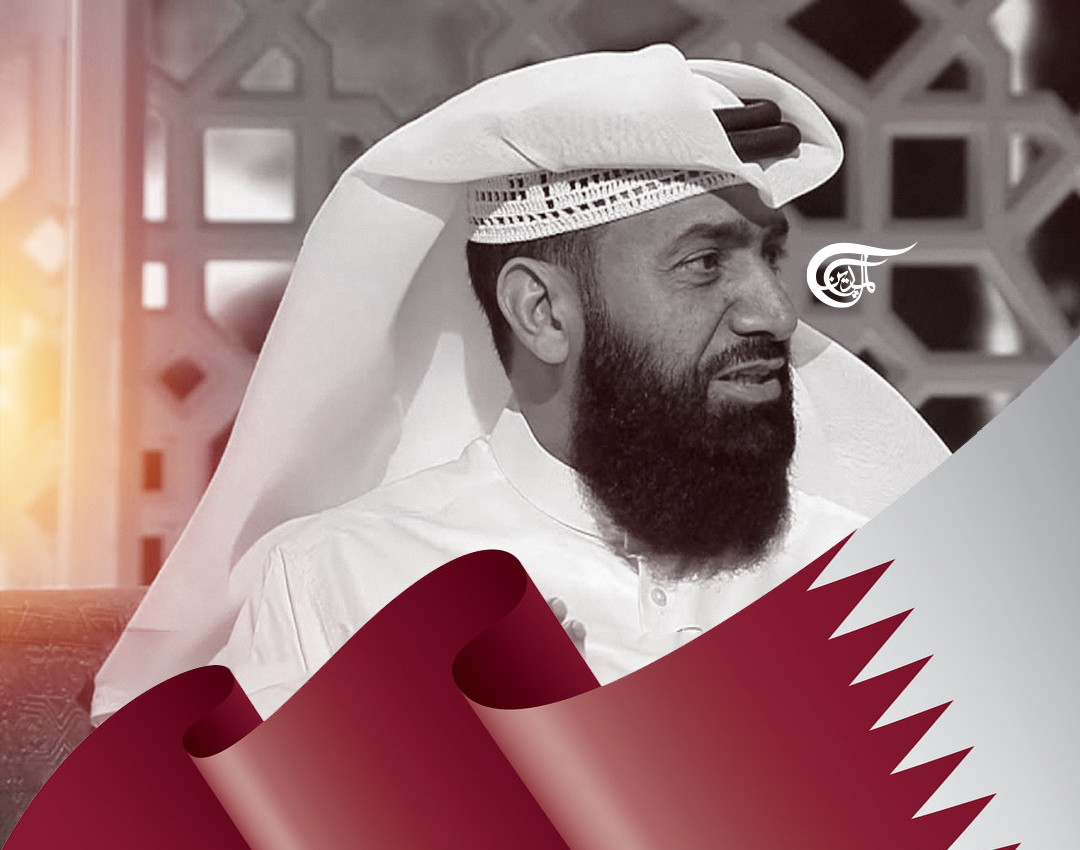Qatar releases Yemeni activist Saleh Al-Jermozi before World Cup kicks off
Qatar, a former member of the Saudi-led coalition fighting in Yemen, released Al-Jermozi before the World Cup kicks off with monitors saying his arrest was going to affect Qatar politically and militarily just as is the case with KSA and UAE.
SANA'A, Yemen (Al-Mayadeen English) — Following his appearance on Al Mayadeen TV on January 21, Yemeni activist Saleh Al-Jermozi disappeared on Jan 22. One of his relatives in Sanaa told Al-Mayadeen English that Qatar’s State Security arrested him, an arrest that was going to affect Qatar’s hosting of FIFA World Cup 2022.
On February 23, however, Yemeni activists published news that Qatari authorities have released Al-Jermozi, without giving more details on the circumstances of his release.
Nonetheless, Al-Jermozi's release came one day following the end of the Gas Exporting Countries Forum in Qatar attended by Iranian President Ebrahim Raisi.
One of Al-Jermozi's relatives and friends told Al Mayadeen English the details of Al-Jermozi's arrest and the possible consequences on Qatar in case it did decide to detain him.
Arrested from home
“The Qatari authorities summoned Saleh while he was at his home in Doha. He went to the questioning and had not returned home,” poet Mohammed Al-Jermozi, one of Saleh’s cousins, told Al Mayadeen English. “They detained him at Qatar's State Security [Qatar’s state intelligence agency].”
The Sanaa-based Mohammed said Saleh’s family in Qatar “informed” him of his arrest, thus encouraging him and other Yemenis subsequently to launch a campaign demanding Qatar to release Saleh and warning it of the consequences.
Saleh Al-Jermozi (49), a father of seven sons, is a Qatari-Yemeni citizen, who lives between Yemen and Qatar. He is also a Doha-based entrepreneur and a manager of a communication company, according to his cousin, Mohammed.
“Recently, he devoted most of his time to support and defend the oppressed Yemeni people fighting the aggression for seven years amid a defining global silence,” Mohammed told Al Mayadeen English. “So he became an activist by expressing Yemeni people's grievances on news channels and through social media.”
He added, “Saleh was arrested without prior warning, a reason or legal justification for his arrest.”
Campaigns demanding Qatar to release Al-Jermozi
Mohammed and several Yemeni journalists and human rights organizations released statements and launched a campaign denouncing the arrest of Saleh and calling upon Qatar for his immediate release.
“After Yemeni and Arab journalists launched a campaign to support Saleh and appealed to the Qatari government to release him, Saleh called me personally and reassured me he is arrested but is treated with esteem and respect,” said Mohammed, stressing that Saleh also asked him “to inform the public not to attack the Qatari government as he is in their hospitality.”
However, Mohammed told Al Mayadeen English on February 19 that Saleh also warned him that “if he [Saleh] suddenly disappears, we should not remain silent.
Why had Qatar arrested Al-Jermozi?
“During his call with me, February 8, Saleh confirmed that the reason behind his arrest was pressure from Saudi Arabia,” Mohammed confirmed. “Saudi Arabia asked the government of Qatar to extradite Saleh to it, but the State of Qatar declined because he is a Qatari citizen, saying if he is involved in anything, the government of Qatar will hold him accountable.”
“The Saudi lawsuit against Saleh was that he has incited against the Saudi regime. But in fact, he is defending the oppressed Yemeni people and exposing the crimes of aggression in Yemen. He has no personal enmity with Saudi Arabia or others, but he defends the Yemeni people against oppression from a religious, patriotic, and fraternal basis," Mohammed told Al Mayadeen English.
After confirming that the main reason for Saleh's arrest is pressure from Saudi Arabia, Saleh hoped that the Qatari government will not comply with the “Saudi orders and pressures” because Saleh is “a Qatari citizen who exercises his legal right in all of his actions.”
Saudi and UAE pressure on Qatar
Ahmed Al-Ashaf, Yemeni political analyst and one of Al-Jermozi's friends, said the data indicates that the appearance of Saleh Al-Jermozi on Al Mayadeen TV annoyed countries that lead the Saudi-led coalition, the UAE and Saudi Arabia.
Saleh Al-Jermozi appeared on Al Mayadeen Live coverage of the Saada pre-trial prison attack on January 21 that killed 92 and injured over 200 prisoners following the Saudi-led coalition airstrikes that knocked out Yemen Internet across the country. Targeting the Internet was seen as an attempt to hide the crime.
“There could be contact between the Qatari authorities and the UAE, which made the Qatari authorities decide to arrest him, as Qatar is trying to maintain its relationship with the UAE after the AlUla Agreement,” Al-Ashaf told Al Mayadeen English.
He added, “I think that the reason for the arrest is Saudi-Emirati directives and pressure on the Qatari authorities in accordance with the agreement between them,” referring to the AlUla Agreement that ended the siege on Qatar.
According to Al-Ashaf, the pressure on the Qatari authorities against Al-Jermozi has not stopped since the beginning of the aggression in March 2015, whether by the Yemeni Embassy in Qatar or the Muslim Brotherhood, but the authorities did not listen to the pressure except after the AlUla Agreement.
“Qatar maintains the continuity of the AlUla Agreement and fears the failure of the agreement, especially as it is supposed to host the World Cup 2022 and does not want to return to the siege that will affect the World Cup,” Al-Ashaf noted.
“I believe the arrest of Al-Jermozi aims to absorb the anger of the countries of aggression [UAE, KSA] after his recent appearance on Al Mayadeen channel,” reasserted Al-Ashaf.
Qatar's role in the war on Yemen
Qatar was a member of the Saudi-led coalition from the start of its launch in March 2015, but it sent 1,000 troops only in September of the same year following Ansar Allah ballistic strike that hit a camp in Marib, killing 65 Gulf soldiers including 45 from UAE, 10 from KSA, and five from Bahrain. No Qatari troops were in the camp.
Following that attack, Al-Jazeera reported that Qatar will deploy 1k troops to Yemen's Marib backed by “over 200 armored vehicles and 30 Apache combat helicopters.”
However, following Qatar's crisis with four Arab countries, KSA, UAE, Bahrain, and Egypt in 2017, Qatar was expelled from the Saudi-led coalition and it announced that its forces stationed in southern Saudi Arabia to protect Saudi borders from Ansar Allah retaliatory attacks have returned home.
After the Qatari reconciliation with the Gulf States, they normalized relations between the Saudi-led coalition state members, but it’s not clear yet if Qatar’s membership in the Saudi coalition has been reinvigorated.
Mohammed, Saleh’s cousin, said he “does not think that Qatar has returned to the Saudi alliance, but I am certain that the Kingdom pressured Qatar to arrest Saleh.”
World Cup 2022 in Qatar
Al-Ashaf told Al Mayadeen English that Al-Jermozi's “arrest may affect Qatar, especially after the great solidarity campaign with Al Jermozi.”
Now, Qatar has released Saleh Al-Jermozi before the World Cup kicks off, but it is not clear if he may continue to live in Qatar and express his views freely.
Al Mayadeen English sent Saleh Al-Jermozi an interview request Thursday via his WhatsApp number but was not available as of the time of publishing this.

 Naseh Shaker
Naseh Shaker
 7 Min Read
7 Min Read











